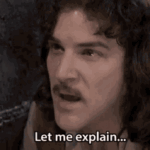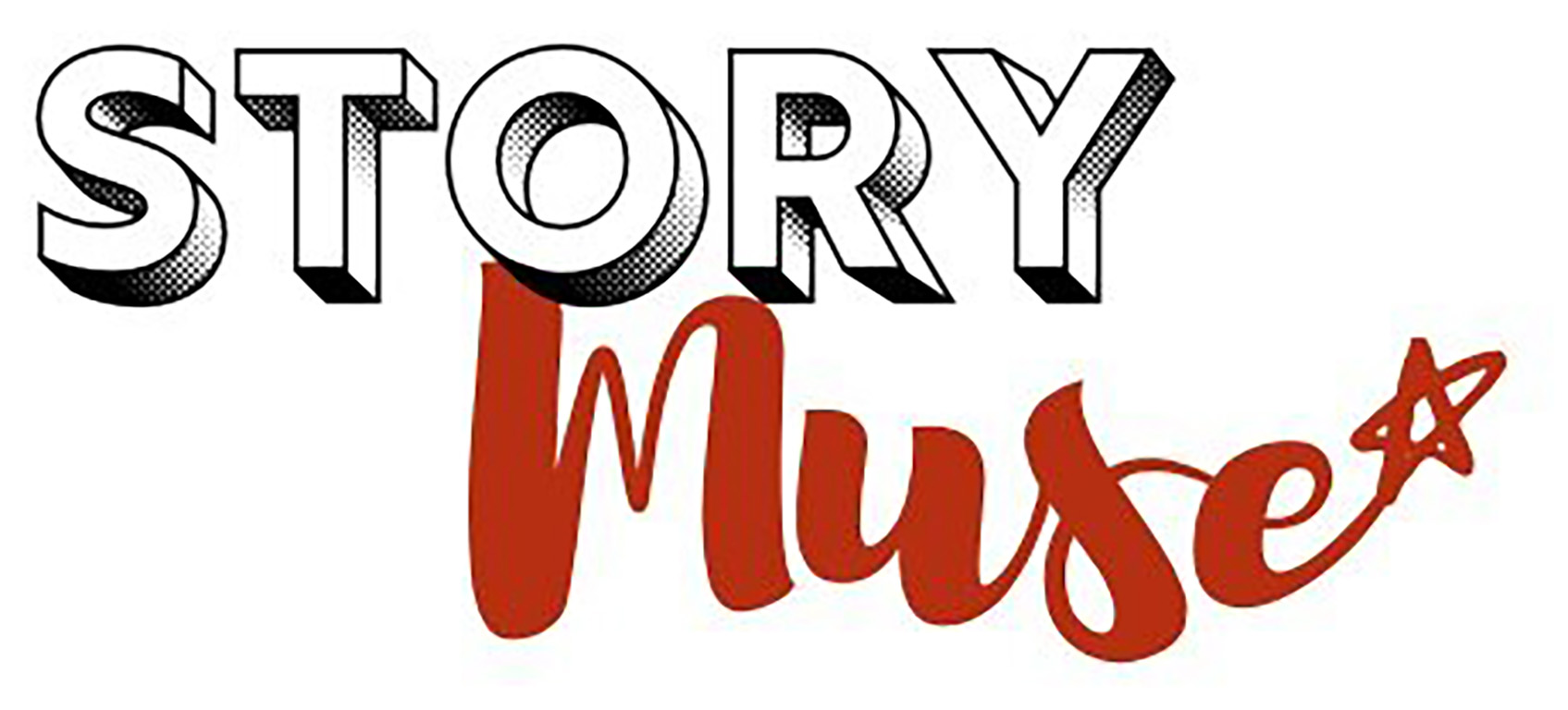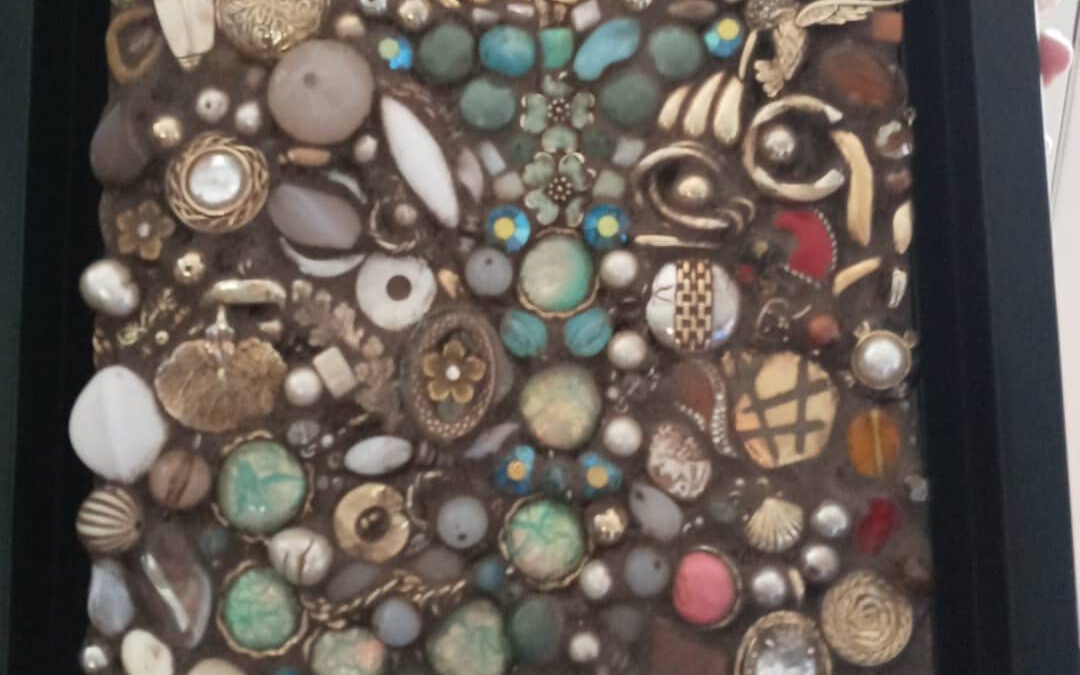 One of the best movies of all time (The Princess Bride) contains one of the best lines of all time, which became one of the best memes of all time:
One of the best movies of all time (The Princess Bride) contains one of the best lines of all time, which became one of the best memes of all time:
“Let me explain. No, it’s too much. Let me sum up…”
I’m not trying to be coy here. I have some people’s privacy to consider. Also, the details are not pertinent. Suffice it to say that I’ve been supporting an assortment of different humans (some family, some not) a generation above me as they navigate through a variety of health complications and life transitions.
This is not new territory for me. I feel like I’ve been doing this variety of adulting for a long time. Which is why, as I recently found myself cleaning out someone’s garage in the midst of yet another one these stories-in-progress, it occurred to me, “Gee, Self-that-talks-to-Self, We (the royal We) should really write down some of what I’ve, er, We’ve learned.”
Now, I don’t know where you’re at in what you imagine to be your life’s journey. Do you think you’re somewhere in the middle half? Are you easing into the final quarter? No matter where you are, here are a few little kernels I’ve gathered about how we all might hold hands and jump from one phase of life into the next.
It Takes a Village
We often acknowledge that it takes a village to raise a child. Sadly, I’m not sure we always practice this philosophy in today’s isolationist, bootstrapper way of life. Still, most people will at least pay some lip service whilst child-rearing to the notion that you need a deeper bench. What’s less common is the understanding and appreciation of the other end of our lives, how equally, vitally important our village is then. We cannot, should not, must not do this part alone.
As I have slept on hospital recliners, created calendars for coordinating treatment transportation and meal drop-offs, called on networks for everything from emotional support to equipment donations, one clarion call keeps echoing in my ear: We are not doing elderhood right way here. It is terrifying, isolating. It can break your back and your bank.
Get to know your neighbors. Get to know the neighbors of the person you might find yourself helping to care for. Have all those people’s numbers in your phone. You never know when you might have to call on any of them to check the mail, put the trash cans away, or even go check on your person. After they’ve done something nice like that, say thank you, drop them a note or a card or cute trinket if you can. Let them know that you are there to return the favor at any time. Do not let capitalism and commerce take over our lives further by turning these requests into anything more than what they are–what we do for each other in civil society. I believe that this is not only how we take back our power from capitalism, but also undo white supremacy culture, especially the individualism part.
No matter where you are in the journey of life, making intergenerational friendships–and I do mean friendships, not just relationships within your family–is a key to lifelong happiness and #PERSPECTIVE. One of my best friends is twelve years younger than me, and, as I’ll get to more here in a second, several of my friends are thirty or so years older. (For more on this, I’ve been drinking from the font of beautiful, funny, hard-earned knowledge that is Julia Louis-Dreyfus’s Wiser Than Me.)
For the Love of All That’s Good and Holy, Handle Your S*** (Stuff)
I mean this. And I mean it in a few different ways.
1) Please don’t wait until someone else is responsible for your physical affairs to start cleaning out your very important papers, your sewing room, your storage unit. It’s not right, it’s not fair. It’s especially not right to assume that the generation that comes after you will understand, appreciate, or respect the items that you have so revered the way you have. If you are sitting on a goldmine of treasures (according to you), please do something with them now. I promise, when there is an overwhelming amount of stuff to deal with, when faced with jars full of keys without locks and locks without keys, everything will start getting pitched into donation bins and, yes, the trash.
Side note: Fourteen years ago, I watched this 20-minute documentary, also called “The Story of Stuff,” when it first came out, and it radically transformed how I see the world and “stuff.” I couldn’t stop talking about it and made everyone I knew watch it with me for a while.
2) I spend a fair amount of time with people in their seventies and eighties. I can’t tell you how much they still blame on their parents. Just the other day, when I pointed out a unique personality quirk to one of my best friends who happens to be in her early eighties, she said, “Well, you know, I think that’s because my mother…” I just had to laugh to myself. If you feel like you’re holding onto baggage in a more spiritual manner (perhaps an altogether different version of keys without locks and locks without keys?), ask yourself if you want to be in the pick-your-boobs-up-to-fasten-your-pants-phase-of-life and still not able to reconcile, still not able to face the archive of papers in your office, still waiting for permission to write your magnum opus. Please start trying now to make your peace, resolve what you need to, and ease that ish on out the door so you can show up as your full, creative, juicy, resourceful self.
 Respect (the Spirit of) Their Wishes
Respect (the Spirit of) Their Wishes
It may seem contradictory to what I just said, but it’s important to do all we can to respect our elders as far as we can. Now, that doesn’t necessarily mean building a monument to Aunt Sally over the piano so she can preside over your day-to-day from the beyond. We can get creative in how we honor their spirits. When my grandmother passed away, she left us with an overwhelming amount of costume jewelry. There were times when it felt we were drowning in it. Eventually, my mother had the brilliant idea to commission an artist to create a mosaic, preserving a small selection to honor Ma–and have no shame in getting rid of as much of the rest as we could bare. Thanks to Angela Bartone for doing an amazing job with this work!
Document, Document, Document
Here are some practical pieces of advice I’ve picked up along the way, so I’m just going to blow through these as quick and simple tidbits that especially pertain to being a primary caretaker or emergency contact person:
- Make extra copies of their driver’s license, insurance cards, living will / advanced directive and make sure these documents are kept in an obvious/easy to find place in their house or keep them at your house if that makes sense. If they are taken to a hospital or a skilled nursing facility, these are often needed first thing. Trust me on this. Having grab-n-go extra copies will make your life oh-so-much easier.
- Remember when I asked how old you were a minute ago? If you’re around my age, you probably just read the bullet point above and thought about someone older than you, but have you thought about it for yourself? I made a will when I was in my early 40s, keep my most vital records updated, and I make sure every six months that the people who would be responsible for me know how to get into my house and where to find my documents.
- Consider keeping a list of medications and hospitalizations history in an updatable electronic file, accessible from multiple locations and by multiple people if your person has multiple family members as points of contact who might be helping them check in. (Something like a Google doc or Dropbox works great for this.) By the time a person is an elder, these lists become very long and complicated and the last thing you want to do is try to reconstruct it at 1 a.m. when you’re tired, hungry, cranky, and have already repeated yourself seven times that day.
- Talk frankly about mental health with your people, as frankly as you would about their osteoporosis or bowel movements. I know this is hard to do, but it’s so important. We have a tendency to guess or make assumptions. Now’s not the time. Get over yourself, get over the stigma, get on with the important conversation that needs to be had.
That Oxygen Mask Thing Is Real, Yo
The saying “put your own oxygen mask on first” is so ubiquitous, it’s almost lost all meaning. It’s really true, though, and so hard to remember when we get into caregiving mode. We start telling ourselves a story: “At least I’m not suffering like they are.” The plot thickens as we start worrying we’re not showing up equally. The plot twists as we agonize over whether we are sacrificing as much as other people who are also helping out in this situation. The climax comes as we dash ourselves on the rocks, blinded by worry about whether we…are…worthy…
Cut the bullshit.
How are you gonna help your person if you’re flat on your back from lifting too much? How are you gonna be able to give more rides if you forgot to take your car in for an oil change?
Take your walks. Drink your water. Call your friend to talk about it. Call your friend to talk about anything but that. Take time off from work. Binge watch Abbot Elementary. Dance it out to your favorite tune. Seriously, you do you. Your person will understand that you’ll be back soon.
[Boy howdy, just in time for releasing this post, We Can Do Hard Things just dropped an episode called REAL Self-Care: Burnout is Not Your Fault with Dr. Pooja Lakshmin. They go deep into the more systemic issues behind self-care–boundaries are included! and no, yoga doesn’t solve everything. Highly recommended!]
Whatcha Got?
If you’ve also journeyed on this road, I invite you to write back to share something you’ve learned. I’ll add it into this post.

